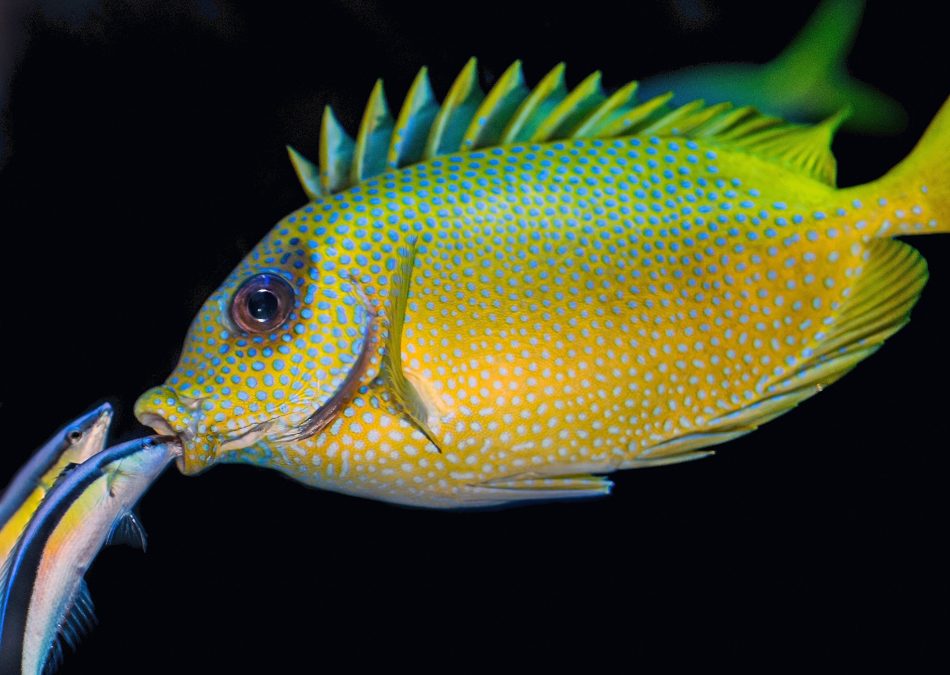A study published in February calls into question the widely held belief that fish are stupid, by showing that they can recognise their own reflection.
Masanori Kohda and Alex Jordan from Osaka City University in Japan and their colleagues tested bluestreak cleaner wrasse (Labroides dimidiatus) with a classic measure of self-awareness – whether they respond to a mark on their body that is only visible to them in their reflection in a mirror. This task requires that an organism is able to understand that their reflection is, in some way, them.
They found that the wrasse were fascinated by their own reflection, attempting social interactions and making peculiar movements towards the image. When the team attached a coloured tag visible only in the mirror, the fish tried to remove the foreign object like they would a parasite.
Human babies can pass the mark test from about 18 months of age, as can chimpanzees, elephants, dolphins and corvids. However, this type of self-awareness has never been reported in fish before. These results suggest either that self-awareness may be more widespread than previously thought, or that the mark test is a poor measure of self-awareness in non-human animals, the authors say. If so, results from previous studies may not truly indicate self-awareness.
Want to Know More?
Kohda, M., Hotta, T., Takeyama, T., Awata, S., Tanaka, H., Asai, J. Y., & Jordan, A. L. (2019). If a fish can pass the mark test, what are the implications for consciousness and self-awareness testing in animals?. PLoS biology, 17(2), e3000021.
Featured image by David Clode on Unsplash




